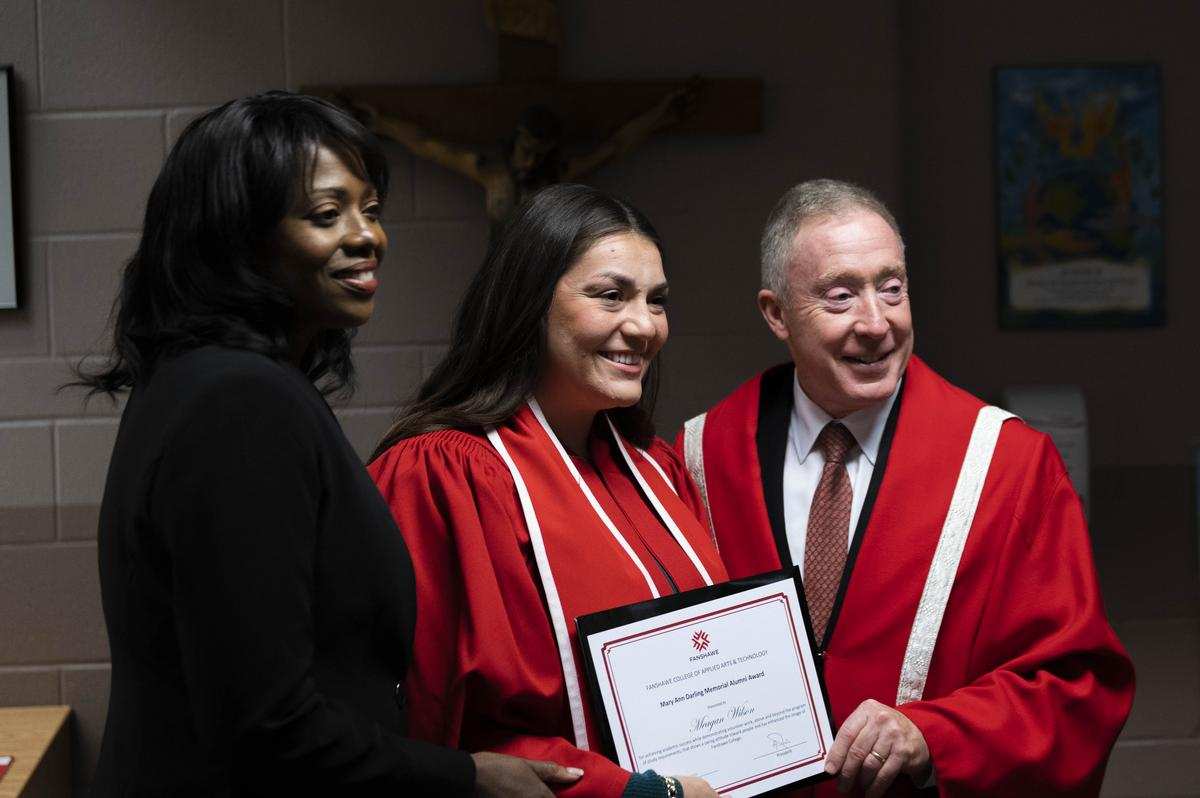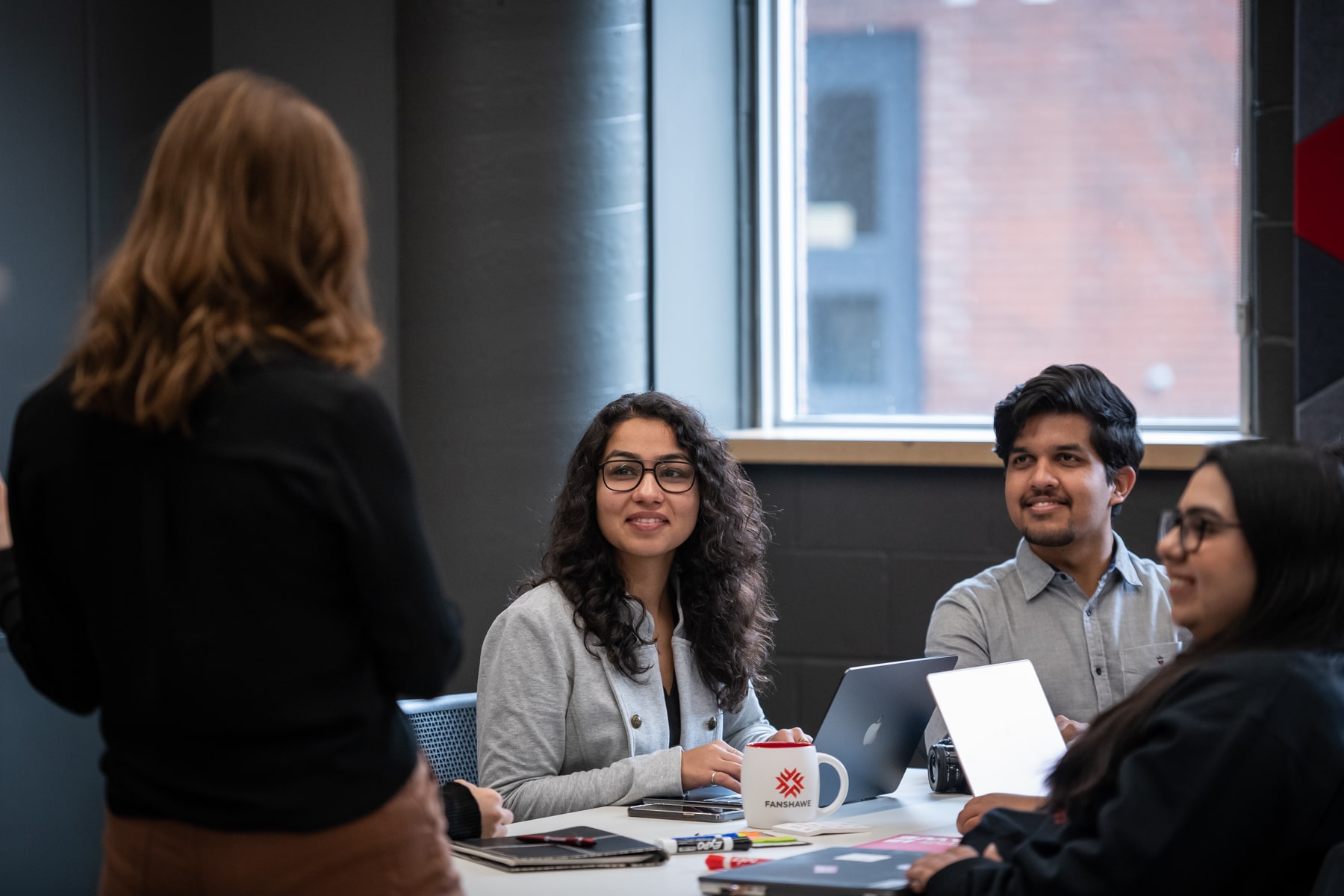Experiential learning can happen anywhere – in the classroom, the workplace, the College or the broader community. Experiential learning activities may be components of a program such as a co-operative education work term or a clinical practicum, or they may be integrated into individual courses within a program such as with case studies, study work or experiential learning projects that connect multiple courses or programs.
Additionally, experiential learning can take place outside of the classroom in any of the other activities that students participate in while they are at the College. Learn more about the different types of project examples our students can anticipate while participating in experiential learning.
We will provide every student with a signature innovative learning experience and job skills for the future so they gain the technical and human skills required for a changing world of work.
5 Benefits of Experiential Learning
Capability to Apply Learning Immediately
This is a chance for students to apply what they’ve learned in class to real-life problems. Our students will continue to practice their knowledge, theory, and procedures in a safe experiential learning environment.
Immediate Feedback & On-site Coaching
Every experiential learning activity includes participation in retrospective sessions where students and professors can debrief on their experience. Students will receive professional feedback from professors with industry experience and peer review feedback from fellow classmates.
Promotion of Teamwork & Communication Skills
Our students are put into practical situations where they can work on their communications and teamwork skills. It’s valuable to build on these employable skills that you just can’t learn from reading a book or attending a class.
Reflect, Develop and Learn
We want to promote a learning environment for students where they can observe the effectiveness of monitoring a plan, foresee the outcomes and continue to optimise and develop future solutions. Students can work to become an “expert” in their field as they continue to gain experience and guidance from industry experts.
Easy to See Improvements
In a traditional learning environment, students’ knowledge and skills are tested against a test or exam. Through experiential learning feedback loop, students can immediately see how to improve and where they can continue to improve and test their theories again.
Combination of traditional and experiential learning equips our students with employable skills and hands on experience for the next step in their career.
Learn more about how Fanshawe College integrates Experience Learning in Employment Opportunities.
Experiential Learning - Frequently Asked Questions
Why is experiential learning important?
It's an important learning format because it allows our students to gain employable experience & skills in the field of their interest. Fanshawe works with local businesses/communities to provide opportunities for students to work with real-life case problems and apply their learning directly through a research or capstone project. This experience can help setup our students for future success where they gain the technical and human skills required for a changing world of work.
How to apply experiential learning in the classroom?
Experiential learning is applied through various project/learning formats since it varies depending on the type of program/course you're taking. We created a blog diving into how Fanshawe College applied experiential learning with our Customer Relationship Marketing and Sales Management and Marketing Management Programs. Read more about Experiential Learning in Employment Opportunities here
What are experiential learning examples?
This is the type of learning where you only gain knowledge from doing the work. At Fanshawe, we offer students various research and real-life projects working with businesses, nonprofit and public sector organizations in the London surrounding communities. Examples from the Lawrence Kinlin School of Business include market research, google analytics, website design, marketing communications and integrated marketing plans.
Visit our SILEX page and learn more about other experiential projects Fanshawe can offer.
What are the 4 experiential learning cycle?
According to the Institute for Experiential Learning, “The experiential learning cycle is a four-step learning process that is applied multiple times in every interaction and experience: Experience – Reflect – Think – Act.” David Kolb’s work on the experiential learning cycle is one of the most influential approaches to learning.
What are the 5 steps of the experiential learning model?
The Experiential Learning Model includes five steps:
- Experience
- Share
- Process
- Generalize
- Apply.






